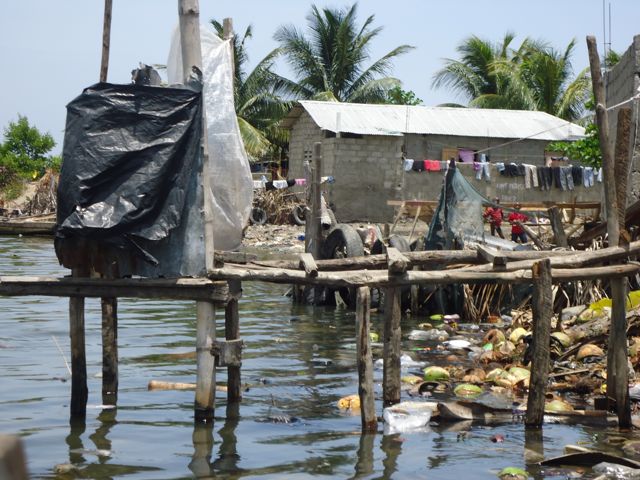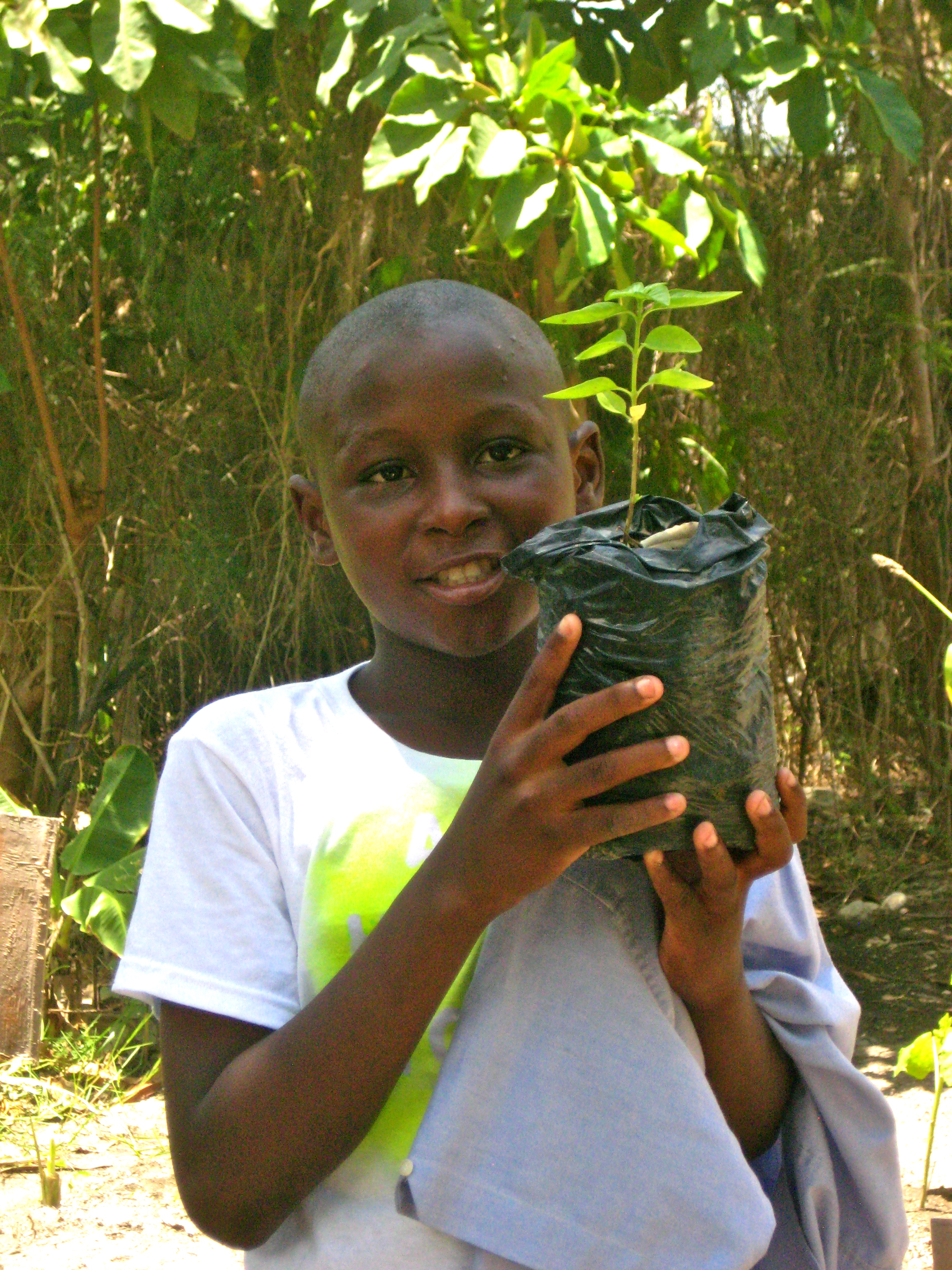SOIL Supporters for the Win!
Last month, we shared with you that SOIL had been named a top 10 finalist in a Nature Conservancy / RARE contest recognizing promising efforts to help vulnerable communities reduce environmental risk and adapt to climate change.
SOIL's application focused on changes in the frequency and strength of storms in the Caribbean, which cause increased floods, mudslides, and droughts in Haiti. SOIL addresses these concerns through Ecological Sanitation (EcoSan), a low-cost method used to safely convert human wastes into rich compost for agricultural use.
EcoSan technologies also provide communities with a dignified, simple way to cope with climate change by:
(a) Improving food security: EcoSan compost provides a low-cost, endless supply of soil amendments to increase agricultural yields in both rural and urban areas and to counteract the negative impact of soil erosion and degradation.
[caption id="attachment_3508" align="alignright" width="300"] SOIL replaces these bathrooms, emptying into the river below, with dry toilets that allow for waste to be collected and turned into compost.[/caption]
SOIL replaces these bathrooms, emptying into the river below, with dry toilets that allow for waste to be collected and turned into compost.[/caption]
(b) Protecting freshwater sources: In Haiti there are only two small government-run waste treatment facilities, both located near the capital city of Port-au-Prince, that serve less than five percent of the population. For the remainder, there is no other option but to dump wastes directly into water sources or to leave them untreated in underground reservoirs, which often leach into groundwater or flood into surrounding waterways. SOIL’s EcoSan toilets and waste treatment facilities help stop the pollution of Haiti’s water resources and prevent the further spread of waterborne diseases such as cholera.
(c) Managing risk: By supporting reforestation and improving the absorptive capacity of topsoil, EcoSan compost helps reduce the risk of future flash floods and mudslides. Over the longer term, EcoSan compost helps abate future climate change by increasing carbon in the soil.
(d) Providing diverse livelihoods: Revenue produced throughout the EcoSan cycle (toilet construction, toilet user fees and maintenance, waste treatment fees, compost sales) can be used by social businesses to create jobs and support long-term economic development.
[caption id="attachment_3509" align="alignright" width="205"] A young fan of SOIL pitches in to help plant![/caption]
A young fan of SOIL pitches in to help plant![/caption]
The Rare/Nature Conservancy Solution Search Contest and Award Ceremony:
While we were thrilled that SOIL's proposal earned us a spot as a top ten finalist, we were up against some stiff competition. Because the winners were to be selected by a popular vote, we called on you, our SOIL supporters, for help – and you came through for us in spectacular fashion! Although there were ten finalists, SOIL garnered more than a quarter of the vote to win the grand prize.
At a beautiful ceremony in Washington, D.C., SOIL Agronomist Jean-Marie Noel accepted the award on behalf of his colleagues in Haiti, saying, “It's a great pleasure to represent SOIL here today and receive this prize. We're making every effort to apply our findings in furthering sanitation programs in Haiti to help people adapt to climate change. We'd like to thank Solution Search for their efforts and the work they are doing, and we invite all of you to visit us in Haiti or online to learn how to replicate our experience in other countries. Thank you!"
We are so grateful for your support, and we are thrilled to bring home $20,000 to support SOIL’s sanitation, agriculture, and reforestation efforts in Haiti.